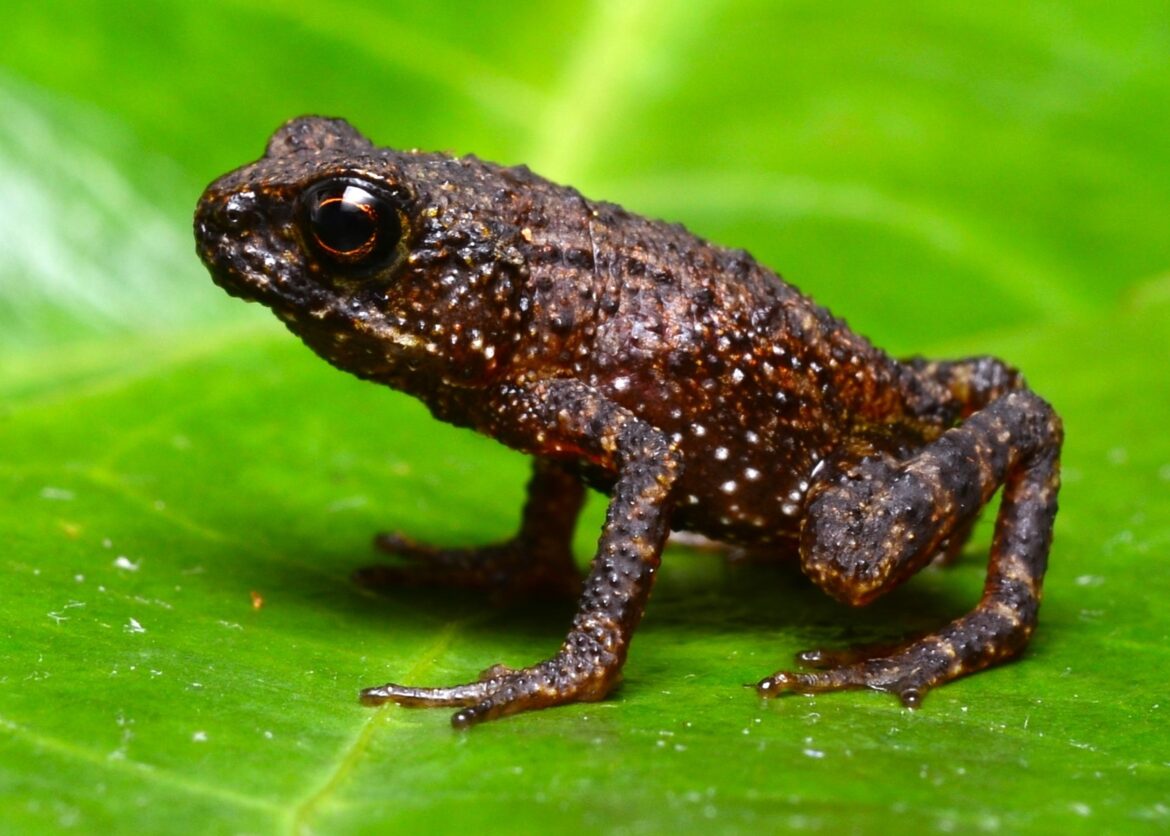KOTA KINABALU: A team of researchers from the Institute of Tropical Biology and Conservation (ITBC), Universiti Malaysia Sabah (UMS) and Sabah Parks made a thrilling discovery on Mount Kinabalu in late 2023 when they rediscovered the critically endangered Mesilau Stream Toad (Ansonia guibei).
The toads were once relatively common but was feared extinct after the devastating earthquake in 2015 caused massive damage to the species’ habitat.
This catastrophic even was expected to have caused significant declines in the toad’s population and even potential extinction.

In addition, tadpoles of the toad were also recorded in the main Mesilau River and Tibabar Stream.
A survey in 2017 at Mesilau failed to locate any specimens, and this resulted in the species being listed as Critically Endangered by the International Union for Conservation of Nature (IUCN).
With funding from the Asian Species Action Partnership (ASAP), the research team lead by Assoc. Prof. Evan Quah of ITBC, UMS set out to reassess the status of the species last year.
In September 2023, the team were elated rediscover of a single subadult specimen of the Mesilau Stream Toad at its type locality.
In addition, tadpoles of the toad were also recorded in the main Mesilau River and Tibabar Stream.

Professor Dr. Evan S.H. Quah Intitute for Tropical Biology and Conservation Universiti Malaysia Sabah
These findings are extremely encouraging as it not only indicates the species survives, but is also breeding. The research team is continuing to monitor the toads at Mesilau to gather more ecological data on the species post-earthquake.
The Mesilau Stream Toad still faces many ongoing threats. Firstly, it has an extremely restricted range and is confined only to the Mesilau watershed on Mount Kinabalu which makes it vulnerable to any extensive changes in the environment.
Second, the preliminary data collected by the team indicates that the habitat of the toad has not fully recovered after the 2015 earthquake.
Landslides still frequently occur at the cliff faces exposed after the earthquake, especially during the rainy season. Runoff and siltation from the landslides affect the water quality of the waterways where the toads breed.
Finally, similar to other montane endemics, the Mesilau Stream Toad faces the ever-present threat of climate change.
As a species that evolved to thrive in the cool, moist conditions of high elevations, it will be vulnerable to changes brought upon by a warming climate.
Thus, the data collected from this ongoing study is critical in the construction of a sound conservation plan to ensure the survival of the species.
Details of the findings were just published this week in the journal Zootaxa.
Deasoka




